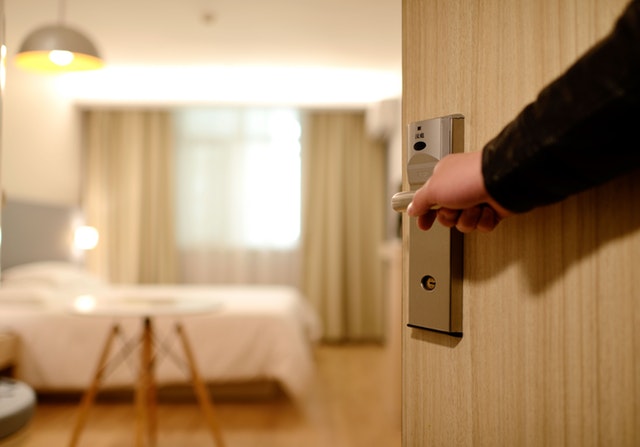Many hotel operators don’t see the significance of an internet presence. But in truth, a resort’s website should be the focus of all advertising strategies. Hotels are currently adding features like, Wi-Fi and in-room states to plug mobile devices in a bid to appeal to the new generation. The outdated hotel sites will likely negate any strategies to lure a younger market. The very first impression a Millennial will have of a hotel is on the internet, so using contemporary effective website design is vital.
To be successful in today’s competitive online arena, your site must be smart. Through this article we discuss the vital factors a hotelier should take into consideration when designing the hotel’s site.
The Three Link Chain of Priorities
The people which are coming to your site have their own motivation and intentions. A number of them are planning business trips, others are considering holiday destinations. To make the best internet experience for your site visitors, your main task is to organise your own resort web design as clear and comprehensive as possible.
There’s a series of priorities to use a base:
- Attract — Generate appropriate traffic by creating an individual – and – SEO-friendly hotel site;
- Motivate — Excite people to go deeper in the site by revealing the resort in a very favourable way;
- Convert — Ensure the motivated traffic becomes business and turn the participating visitors into direct hotel earnings.
The Hotel market is a market that demands a single approach to the resort site development.  Your job is to discover and tune the appropriate balance between visual understanding, traffic creation effectiveness and shrewd conversion methods for your hotel site.
Your job is to discover and tune the appropriate balance between visual understanding, traffic creation effectiveness and shrewd conversion methods for your hotel site.
Functionality
Have you ever seen a site attempting to do something which you’re supposed to be in a position to do but could not? This wasn’t a fantastic site then. If your customers do not find what they want on your site, a pretty layout with its fine colour schemes and fancy buttons won’t make any sense. Individuals won’t remain on a site that’s challenging to use.
So, what will make a great resort site?
Navigation
A resort website should give responses to all queries the visitors may have, like the resort location possessing clear descriptions about the best way best to get there, dimensions of rooms, ski weather and conditions (if you’re a ski lodge). People have a very wide set of queries based on their particular ailments. A number of them are travelling as parents and want to know how you cater for families. Winter locations may choose to include queries about weather specific features like a luxury day spa and provide informative information on the website. Some are business travellers, probably considering the sufficient amount of power points for devices, the inclusion of a desk or the Wi-Fi capabilities, etc.
A contemporary site design necessitates becoming more energetic and requires us to continue down a direct path rather than through all of these mad navigation trees which have many possible paths you could end up down. Some resort website designers believe they should provide us hundreds of distinct items to click, we may click on one. Professional resort web design goes into a new way by getting more user-friendly and potent.
Create the navigation as much clear and suitable as possible, so the potential client won’t depart from your site without creating a booking.
Online Booking Systems
Creating a successful site where visitors have everything that they require to reserve a hotel room on the internet is the important factor in a successful resort site that converts. Online booking systems are increasingly common. If you can’t take online bookings, then you’re passing up a substantial portion of revenue.
The current economic condition points to online bookings becoming the primary source of hotel reservation — both for travellers that visit the web seeking savings and for providers seeking more earnings. But saving money isn’t the sole reason clients are turning online to reserve a stay. Additionally, it gets rid of hassle for you and your clients because…
- It’s a self-service. Your service operates 24/7, and that means people can navigate and book when most convenient for them;
- Your expenditures decrease, because manual handling of reservations is lessened;
- There’s the benefit of automating calculation when a computer does the maths rather than you personally, there is less room for error;
- Quicker booking confirmation. You get paid in time, and the client receives a confirmation email including all the specifics of their booking.
This means that tour operators must adapt to online booking capabilities in order to not lose out on reservations. When implementing an internet reservation system, the vital question for a B&B owner in Melbourne to managers of luxury accommodation in Tasmania is can they identify and launch the web design ideas that will really work for their business.
